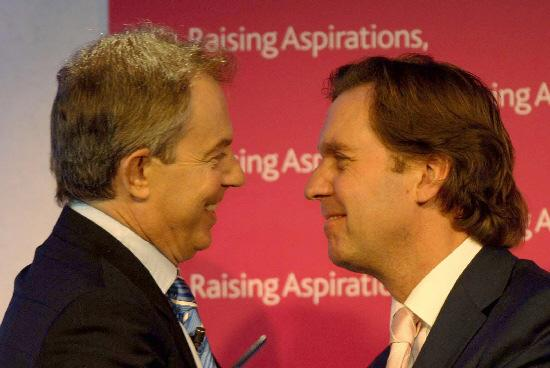
#THREAD on #charity under #neoliberalism.
"The mobilisation of charity & welfare state restructuring are part of a broader project to ‘reassemble the social’ in accordance with (neo)liberal ideals of spontaneous, affective, self-regulating sociality."
tandfonline.com/doi/full/10.10…
"The mobilisation of charity & welfare state restructuring are part of a broader project to ‘reassemble the social’ in accordance with (neo)liberal ideals of spontaneous, affective, self-regulating sociality."
tandfonline.com/doi/full/10.10…
I'll quote/summarise the main conclusions of this innovative & timely intervention by Andrew Clarke & Cameron Parsell, who call for a reconfiguration, enabling people experiencing poverty, & the charitable people who work alongside them, to contribute to reassembling the social.
Enrolling charity in the neoliberalization of the social contributes to the reconfiguring of citizenship, solidarity & the social status of the poor to cultivate ethical solidarity, rather than to understand the true needs of the poor, or to address the causes of #poverty.
First, the relationship between the charitable & the poor is one in which the latter lack the capacity to practice reciprocity. In the charity encounter, the charitable dedicate their time resources to helping the poor, & in exchange they derive " ethical capital":
symbolic recognition of their performance of the virtues of ethical citizenship. Whilst the poor receive (often meagre) material & emotional support, & sometimes companionship, they are denied the opportunity to reciprocate the act of giving & thus to accrue ethical capital.
Insofar as neoliberalized citizenship and solidarity is premised on the performance of ethical acts of spontaneous compassion and care, those without ethical capital are at risk of being seen as less than full citizens – and may come to experience themselves in this way.
Second, the mobilization of charity for the production of neoliberal solidarity contributes to the depoliticization of poverty: poverty becomes taken for granted as that which motivates charitable giving & makes possible solidarity built on shared sentiments of pity/compassion.
The focus of charity is thus on responding to the immediate manifestations of poverty & on the value of the responses for the broader community, diverting attention from the actual needs of people charity purports to help, & the structural processes that produce those needs.
At the same time, and paradoxically, there is an increased focus on the experience of poverty, as pathos-laden images and accounts of the lives of the poor both motivate acts of ethical citizenship and contribute to the symbolic value of those acts.
Poverty is thus reified as a quasi-natural phenomenon, to which there is an appropriate/socially sanctioned response – pity & compassion – but for which there is no ultimate solution.
Rather than recognizing such people as more than their poverty – as complex subjects with the agency to define & articulate their own needs – they are constituted as objects of pity, as passive & one-dimensional subjects who are a mere resource for others’ reassembling projects.
The mobilization of charity also contributes to the depoliticization of poverty in that it is often bound up with efforts to establish ‘post-political’ modes of governance, which represent poverty & other social problems as discrete practical or ‘techno-managerial’ problems.
Rather than seeing eg poverty as a political issue relating to how society is structured, pragmatic & technically innovative responses are promoted, particularly those provided by actors that operate ‘beyond-the-state’, thus excluding any democratic/Government accountability.
Under neoliberalism, charity is celebrated by political actors and the public at large precisely because it offers the kind of depoliticizing pragmatism, bottom-up ingenuity, and arms-length service delivery that correspond to post-political governance strategies.
The implication of charity in post-political modes of governing leads us to the third consequence, which is that of the depoliticization of civil society itself.
Civil society can be assembled as a space for rational deliberation on collective political concerns (Habermas).
Civil society can be assembled as a space for rational deliberation on collective political concerns (Habermas).
However, the positioning of charity as a pragmatic & innovative responses to poverty positions civil society more as a source of techno-managerial ‘solutions’ than of political debate & the critical questioning of the status quo.
Furthermore, the characterization of community, that charity is believed to enact, is valued by neoliberalism precisely because it is assumed to be pre-political & pure.
Indeed, community is celebrated as an alternative to politics.
Indeed, community is celebrated as an alternative to politics.
'Community' is imagined to be comprised of ‘ordinary people’ who are both above the venal self-interest & grubby power plays of institutional politics, & below the artificial & abstract calculations of welfare bureaucracies that are ‘out of touch’ with everyday realities.
Concealed through these processes of depoliticization and exclusion is the opportunity for charity to act as a conduit or champion for the interests of people experiencing poverty, and as a means for enabling structural change.
Andrew Clarke & Cameron Parsell conclude with a call for the transformation of charity, such that it centres on the needs of the recipient, rather than those of the charitable giver and the neoliberalizing forms of community that they represent.
Transformation from this perspective would progress the democratization of translation by enabling people experiencing poverty, and the charitable people who work alongside them, to contribute to reassembling the social on the basis of their own needs and worldviews.
Given the relationality of charity, this project will necessarily entail transforming the systems of poverty governance in which charity is implicated, particularly the operations of the welfare state.
It also means the production of forms of citizenship and solidarity that are inclusive of people experiencing poverty, and which enable them to engage in relations of reciprocity and connectedness across existing social divides.
• • •
Missing some Tweet in this thread? You can try to
force a refresh








